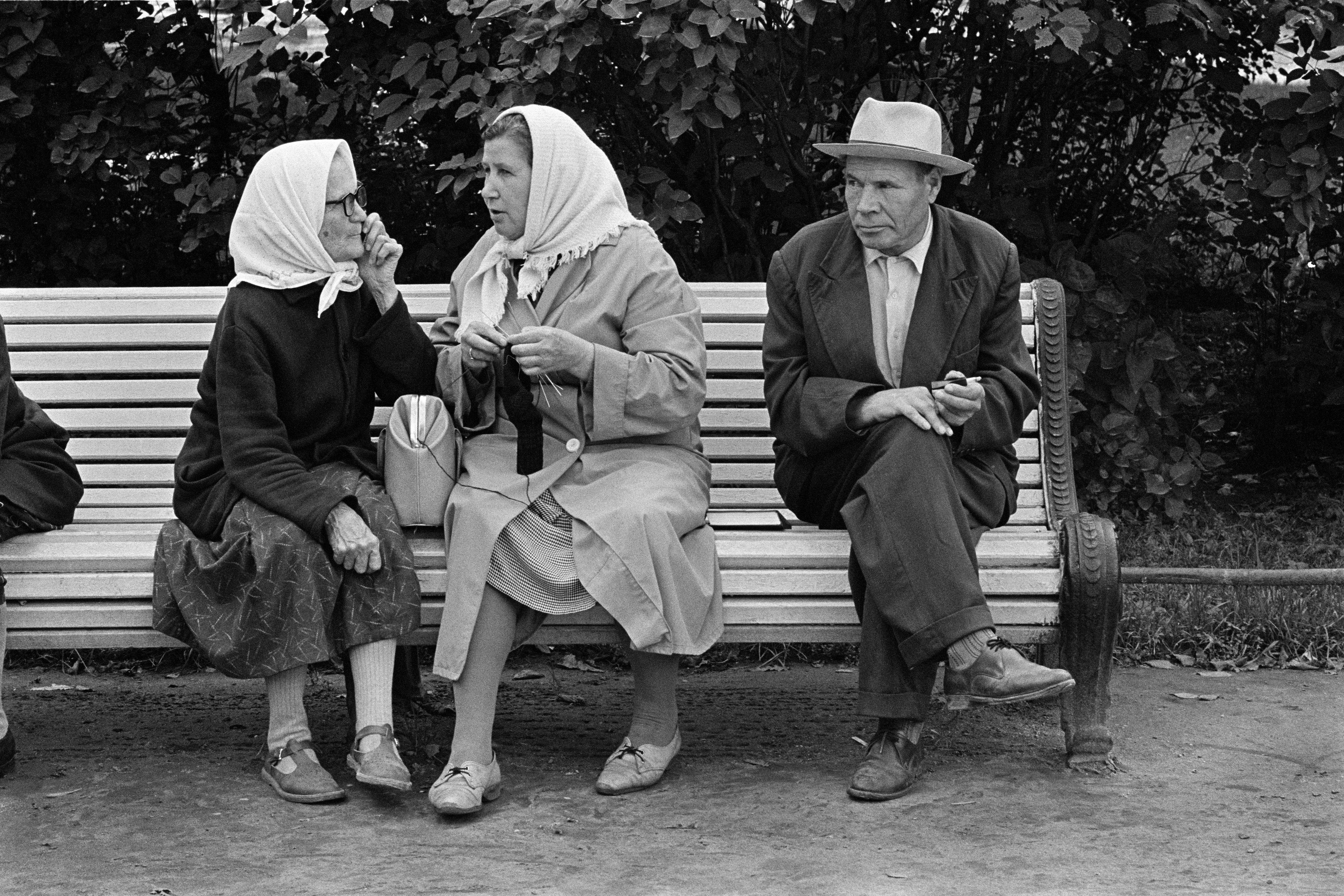The British TV quiz show University Challenge is known for its tough questions and the lightning-fast responses of the contestants: How is hydrated magnesium silicate known when used in a bathroom? Which major US city is geographically closest to London? Species in which family of seabirds include Arctic, River, Sandwich and Roseate? If you are the average TV watcher, chances are someone on the show will have pressed the buzzer before you even had time to understand the question (Talc! Boston! Tern!) The participants are certainly all very knowledgeable, but there is more to it than just knowing the answers. ‘People who aren’t “natural quizzers” think they should only buzz in when absolutely certain, which usually means waiting to hear as much of the question as possible,’ says Tom Whyman, a philosophy lecturer and a former contestant. ‘In fact, you have to get to the buzzer before your head quite gets to the answer: if I had to describe the feeling, it’s a knowing that you’re going to know.’
That feeling of ‘knowing that you’re going to know’ is commonly described in psychology as the feeling of knowing. It belongs to a ragtag family of emotional processes called metacognitive feelings, which includes things like the feeling that you are forgetting something, the sense of déjà vu, the feeling of insight, or the sensation that some key information is at the tip of your tongue.
These everyday experiences are often overlooked, but they provide important examples of the interplay between emotion and reason. The picture of the mind that most people have is still one in which passion and reason are separate, and emotions get in the way of clear thinking. But metacognitive feelings show the constant interaction of ‘reason’ and ‘passion’ in our mental processes. Moreover – as we’ll explain – these feelings are consequential. In fact, cognitive prowess often has to do with tuning into these feelings in a skilful way, as the University Challenge example shows.
So, what are metacognitive feelings? Put succinctly but loosely: they are feelings about thinking. Why ‘metacognitive’? Cognition, broadly understood, is the processing of information; metacognition involves the monitoring and control of cognition. That includes judgments about thinking, such as trying to rate how good you are at a certain type of mental task. But it also includes metacognitive feelings, which help us to evaluate and regulate cognitive activity.
Metacognitive feelings tend to be mild and sometimes run in the background, so that one has to reflect on them to fully notice them. But they are feelings nonetheless, just like anger or sadness. They have valence (the feeling of knowing feels good, the feeling of forgetting feels bad); they vary in their level of arousal (think of the exciting ‘aha’ moments of insight, versus a mild feeling of familiarity); and they are embodied and guided by visceral information (eg, an increase in heart rate), like other feelings are.
The dominant idea about how metacognitive feelings work is that they are based on simple, cue-based rules. Take the feeling of familiarity. You sit down on a train, and you have a sudden, mildly positive feeling that the person across from you is someone you know. Or you see a painting, and you have the feeling that you have encountered it before, but you can’t quite place it. As it turns out, the feeling of familiarity depends on the speed or ease with which visual input is processed, as well as features such as the size and clarity of the stimulus in question. All of these serve as cues that indicate that the stimulus has been encountered before – and the feeling of familiarity emerges accordingly.
Metacognitive feelings don’t just give you a passive assessment of the situation, they also drive action
We wanted to go further in explaining how metacognitive feelings emerge and how they guide people’s actions. So we recently reviewed existing work across the cognitive sciences and advanced a new perspective on these feelings.
Our perspective is framed by theories that depict the brain as a prediction machine. A key idea here is that our brains are constantly riding the ups and downs of the uncertainty that surrounds us. Part of this uncertainty has to do with our own cognitive processes and capacities (Am I doing this multiplication right? Will I be able to recall what the capital of Nepal is?) In this context, visceral changes such as an increased heart rate serve as cues about the uncertainty associated with a particular cognitive process. What metacognitive feelings do is model how well the process – whether it’s multiplying two numbers, remembering a name, or something else – is likely to unfold, based on those cues. If the process is expected to run smoothly, positive metacognitive feelings, like feeling confident, will arise; if the process is expected to go awry, negative metacognitive feelings, like the feeling of error, will be the ones taking over.
If you want a demonstration, read the following sentence: ‘The haystack was important because the cloth ripped.’ We imagine you are feeling confused. Trying to comprehend the hard-to-parse sentence likely caused a surge in uncertainty, leading to a negative metacognitive feeling of confusion. Now, pay attention to how your emotional experience changes after you read the following word: parachute. Aha! Hopefully the above passage makes sense now (the ‘cloth’ referred to someone’s parachute). What happens is that there is a sudden increase in how well you are expected to deal with uncertainty, resulting in a positive feeling of insight, sometimes called the ‘aha’ experience or eureka moment. That’s how metacognitive feelings respond to the informational dynamics involved in various mental activities.
Crucially, metacognitive feelings such as the feeling of knowing don’t just give you a passive assessment of the situation (You know the answer to this question), they also drive action (Press the buzzer! You know this one!) Let’s go back to the feeling of insight for a striking, if historically dubious, example. As the legend goes, Archimedes noticed the water rising as he sat down in a public bath, and he leapt up, shouting ‘Eureka!’ (meaning something like ‘Found it!’ or ‘I got it!’) The action didn’t end there: supposedly Archimedes went running around the streets of Syracuse in his naked excitement, because he had suddenly grasped that the volume of the water displaced as he sat down equalled the volume of the submerged part of his body. So, there is a sense of increased certainty about the mechanics of the world, encapsulated in the metacognitive feeling of insight, which cascades into a rush of excited action.
The feeling of surprise can serve as a feedback mechanism to help us update and refine expectations
In a more mundane case, you might have an unpleasant feeling of forgetting something (There was someone I needed to email…), which makes you invest yourself into the process of remembering. Perhaps this even leads to the feeling that the sought-for information is on the tip of your tongue (It was someone from work; it was…), which leads you to maintain the search, and hopefully to remember – with the accompanying feeling of insight (Alex from finance!) This puts an end to the process of retrieving information and starts the actions involved in writing the relevant email.
In this way, metacognitive feelings both model and sculpt the informational dynamics of your mental life. Recent experimental results seem to point in this direction. In one study on surprise, the researchers found that it is best explained as a result of the interplay between our expectations and incoming information. The feeling of surprise can serve as a feedback mechanism that helps us update and refine these expectations, allowing us to better understand and navigate the world around us. Another study, based on the card game blackjack, found that the feeling of suspense corresponds to an expectation that consequential information will be revealed in an upcoming moment – which could lead to eager anticipation and attention.
Metacognitive feelings can also shape thinking outside the confines of well-crafted experimental settings and niche environments like University Challenge. Here is a dramatic historical example: in 1983, deafening alarms went off in the nuclear early warning facility in Serpukhov. The system indicated that five ballistic missiles were heading from the United States to the Soviet Union. It was down to Lt Colonel Stanislav Petrov to make a split decision. ‘False alarm,’ Petrov told the Soviet air defence forces, averting nuclear war. When a reporter asked how he was able to make the right call under such enormous pressure, Petrov said: ‘I had a funny feeling in my gut.’
As such examples illustrate, we shouldn’t think of feelings as ‘getting in the way’ of higher cognitive processes; they play a crucial role in thinking. The feeling of knowing was found to accurately reflect the quality of learning in one previous study. And when people have to choose what to restudy for tests, they rely on their feelings of knowing in an adaptive way. There are similar findings for other metacognitive feelings. For instance, an experiment using a multiple-choice test as a paradigm found that the strategic use of tip-of-the-tongue experiences led to better scores.
This does not mean, however, that you should trust your guts blindly. In fact, metacognitive feelings can sometimes lead you astray. In a cleverly designed experiment, participants were given a sentence in which one word was scrambled, such as: ‘Free will is a powerful oinliusl.’ Then, they had to solve the anagram, resulting in a sentence that encapsulated a particular worldview: ‘Free will is a powerful illusion.’ Participants were then asked to rate the sentence on a truth scale, from definitely false to definitely true. They were also asked if they had experienced an ‘aha’ moment. The researchers found that participants rated the statement as truer when they had experienced ‘aha’ moments after solving the anagram. The problem is that, in this case, the metacognitive feeling had been artificially induced. Obviously, whether or not you get a feeling of sudden insight after solving the anagram ‘oinliusl’ has no bearing on whether free will is an illusion.
The need for caution applies to other metacognitive feelings as well. Tweaking the cues that elicit such feelings is, in all likelihood, an important element in the workings of misinformation, advertising and populist propaganda. This is particularly significant since feelings of truth have a strong influence on what we take to be true in the first place. Feelings can be manipulated and, depending on the context, they might be misleading. This makes awareness of metacognitive feelings only more important. So, pay attention to your feelings when you are thinking – but do so wisely.








